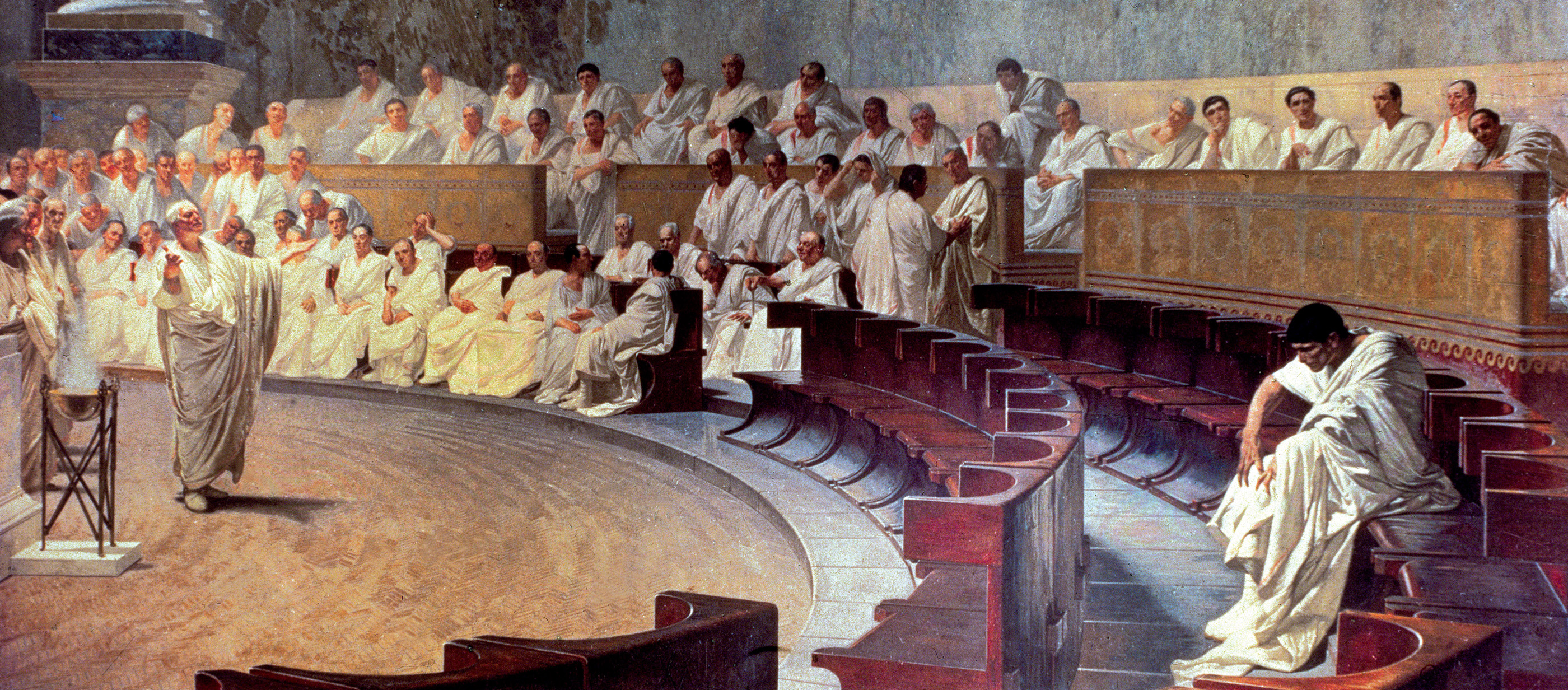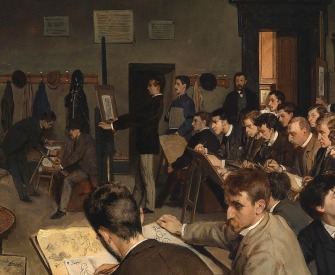Make the revolution a parent of settlement and not a nursery of future revolutions.
—Edmund Burke, 1790Questioning the Pope
Martin Luther lodges a complaint.
Out of love for the truth and the desire to bring it to light, the following propositions will be discussed at Wittenberg, under the presidency of the Reverend Father Martin Luther, master of arts and of sacred theology and lecturer in ordinary on the same at that place. Wherefore he requests that those who are unable to be present and debate orally with us, may do so by letter. In the Name of our Lord Jesus Christ. Amen.
Our Lord and Master Jesus Christ, when He said “repent,” willed that the whole life of believers should be repentance.
This word cannot be understood to mean sacramental penance, i.e., confession and satisfaction, which is administered by the priests.
Yet it means not inward repentance only; nay, there is no inward repentance that does not outwardly work diverse mortifications of the flesh.
The penalty of sin, therefore, continues so long as hatred of self continues, for this is the true inward repentance, and continues until our entrance into the kingdom of heaven.
The pope cannot remit any guilt except by declaring that it has been remitted by God and by assenting to God’s remission; though, to be sure, he may grant remission in cases reserved to his judgment.
Those preachers of indulgences are in error who say that by the pope’s indulgences a man is freed from every penalty, and saved.
It is certain that when the penny jingles into the money box, gain and avarice can be increased, but the result of the intercession of the Church is in the power of God alone.
They will be condemned eternally, together with their teachers, who believe themselves sure of their salvation because they have letters of pardon.
Every truly repentant Christian has a right to full remission of penalty and guilt, even without letters of pardon.
Every true Christian, whether living or dead, has part in all the blessings of Christ and the Church, and this is granted to him by God, even without letters of pardon.
Nevertheless, the remission and participation in the blessings of the Church that are granted by the pope are in no way to be despised, for they are the declaration of divine remission.
Christians are to be taught that he who gives to the poor or lends to the needy does a better work than buying pardons.
Because love grows by works of love, and man becomes better; but by pardons man does not grow better, only more free from penalty.
Christians are to be taught that he who sees a man in need and passes him by, but gives his money for pardons, purchases not the indulgences of the pope, but the indignation of God.
Christians are to be taught that the buying of pardons is a matter of free will, and not of commandment.
Christians are to be taught that if the pope knew the exactions of the pardon preachers, he would rather that St. Peter’s church should go to ashes, than that it should be built up with the skin, flesh, and bones of his sheep.
It must be the intention of the pope that if pardons, which are a very small thing, are celebrated with one bell, with single processions and ceremonies, then the Gospel, which is the very greatest thing, should be preached with a hundred bells, a hundred processions, a hundred ceremonies.
The “treasures of the Church,” out of which the pope grants indulgences, are not sufficiently named or known among the people of Christ.
The true treasure of the Church is the Most Holy Gospel of the glory and the grace of God.
The treasures of the Gospel are nets with which they formerly were wont to fish for men of riches.
The treasures of the indulgences are nets with which they now fish for the riches of men.
He who speaks against the truth of apostolic pardons, let him be anathema and accursed!
But he who guards against the lust and license of the pardon preachers, let him be blessed!
To say that the cross, emblazoned with the papal arms, which is set up by the preachers of indulgences, is of equal worth with the cross of Christ, is blasphemy.
The bishops, curates, and theologians who allow such talk to be spread among the people will have an account to render.
This unbridled preaching of pardons makes it no easy matter, even for learned men, to rescue the reverence due to the pope from slander, or even from the shrewd questionings of the laity.
To wit: “Why does not the pope empty purgatory, for the sake of holy love and of the dire need of the souls that are there, if he redeems an infinite number of souls for the sake of miserable money with which to build a church? The former reasons would be most just; the latter is most trivial.”
Again: “What is this new piety of God and the pope, that for money they allow a man who is impious and their enemy to buy out of purgatory the pious soul of a friend of God, and do not rather, because of that pious and beloved soul’s own need, free it for pure love’s sake?”
Again: “Why does not the pope, whose wealth is today greater than the riches of the richest, build just this one church of St. Peter with his own money, rather than with the money of poor believers?”

Cicero Denounces Catiline, by Cesare Maccari, 1888. Palazzo Madama, Rome, Italy.
To repress these arguments and scruples of the laity by force alone, and not to resolve them by giving reasons, is to expose the Church and the pope to the ridicule of their enemies and to make Christians unhappy.
If, therefore, pardons were preached according to the spirit and mind of the pope, all these doubts would be readily resolved; nay, they would not exist.
Away, then, with all those prophets who say to the people of Christ, “Peace, peace,” and there is no peace!
Blessed be all those prophets who say to the people of Christ, “Cross, cross,” and there is no cross!
Christians are to be exhorted that they be diligent in following Christ, their Head, through penalties, deaths, and hell;
And thus be confident of entering into heaven rather through many tribulations, than through the assurance of peace.

Martin Luther
From The Ninety-Five Theses. While the story about Luther nailing his theses to a church door is apocryphal, he did send the document on October 31, 1517, to Archbishop Albert of Mainz, who passed it along to Pope Leo X in Rome. Printed copies of Luther’s protestations circulated widely in Germany. Shortly after his excommunication in 1521, he was ordered to appear before the Diet of Worms, where he refused to recant any of his claims and purportedly remarked, “Here I stand. I cannot do otherwise. God help me.” Luther died at the age of sixty-two in 1546.


